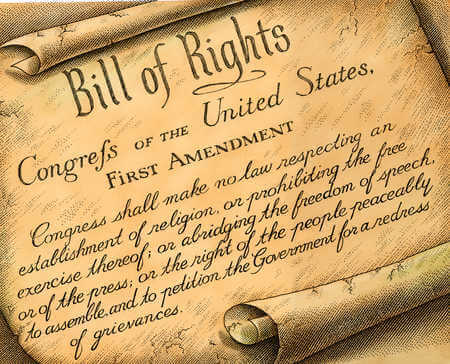U.S. State Department Weighs in on UK Christian Free Speech Case
April 24th, 2025

Over the past few months, the United States government has become increasingly vocal about its concerns over U.K. speech laws. Some, including members of the newly elected U.S. government, would argue that these “speech laws” are actually censorship laws. One cannot deny that the First Amendment in the United States gives its citizens inherently stronger freedom of expression compared to the United Kingdom. That being said, the situation is probably more complex than it looks – and this was made clear after a recent case in Bournemouth, England.
Woman Arrested for Seemingly Innocent Sign in Bournemouth
Back in 2023, a woman in Bournemouth was arrested after publicly holding a sign that read “Here to talk if you want.” At first glance, this story might seem utterly ridiculous – especially to American citizens who are used to enjoying free speech under the First Amendment. But when one takes a closer look at the laws in the UK, this story becomes more complex.
The woman was holding her sign in a so-called “buffer zone” around an abortion clinic – and is the leader of a local anti-abortion (some would say “pro-life”) charity. These “safe access zones” exist within 150 meters of any healthcare facility that provides abortion services in England or Wales. Within these zones, no one can “influence, obstruct, harass, alarm, or distress” anyone trying to access abortion services.
Free Speech Suspended in Abortion Buffer Zones
In other words, freedom of speech is suspended within these safe access zones – at least when it comes to expressing sentiments against abortion. The question is whether a sign saying “here to talk if you want” violates this law. Some might argue that the wording is too innocent to influence or harass anyone. An offer to talk to anyone within a buffer zone is not exactly an act of outright protest. It certainly is not the same as warning someone that they will go to hell if they get an abortion.
In April of 2025, the U.S. Bureau of Democracy, Human Rights and Labor posted on X, stating: “We are concerned about freedom of expression in the United Kingdom… We are monitoring [Ms Tossici-Bolt’s] case.”
The defendant immediately offered her gratitude, stating that “Great Britain is supposed to be a free country,” and that she was “merely offering consensual conversation” and making “harmless offers to converse.”
Free Speech in Europe
This echoes recent efforts by the United States to highlight what they see as free speech violations not just in the United Kingdom, but across Europe. One notable example is a comment by Vice President J.D. Vance, pointing out that Scottish people can be arrested for praying in their own homes.
This might also seem ridiculous to the average American, but there is some truth to it. Again, this involves buffer zones around abortion clinics. If a home happens to exist within one of these buffer zones, it is possible for occupants to face criminal charges for praying inside. According to the politician who wrote this law, it all depends on whether the prayer is visible from the outside. The lawmaker also notes that the illegality of prayer depends on who happens to be walking past the home at any given time.
Keep Informed with the Universal Life Church
Each month, various cases test the nature of religious rights in this country. While the basis for many religious rights is the United States Constitution, there are still countless cases that question the exact nature of these rights. The Universal Life Church’s blog is focused on documenting the most noteworthy of these cases in an objective manner that can be easily understood by readers.


